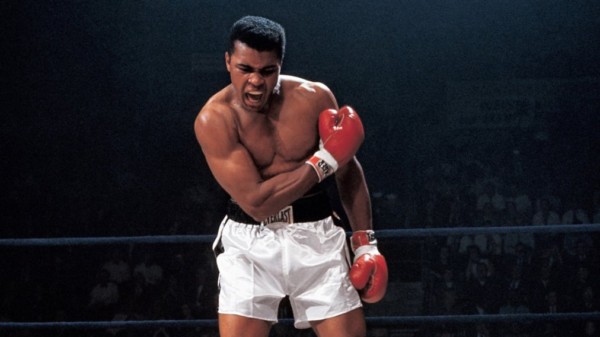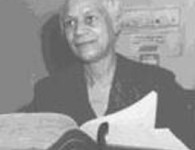Photo credits: Neil Leife for Sports Illustrated Magazine
When heavyweight boxing champion Cassius Clay changed his name to Muhammad Ali after converting to Islam, he said his birth name was “a slave name,” adding, “I didn’t choose it and I don’t want it.” His new name, he noted, is “a free name” meaning “beloved of God.”
Ali formally made his name change on February 26, 1964, after joining the Nation of Islam. Prior to that, Ali went by Cassius X. However, there is a lesser-known historical fact about Ali’s original birth name. He inherited the name at birth from his father — Cassius Marcellus Clay. In fact, Ali’s father’s name was given in honor of Cassius M. Clay, a fervent anti-slavery abolitionist who graduated from Yale in 1832.
Judith Schiff, the chief research archivist in the Yale University Library’s Manuscripts and Archives, alerted YaleNews to the connection following Ali’s death on June 3, 2016, at the age of 74. Schiff noted that in “Memorials of Eminent Yale Men,” Anson Phelps Stokes said of the Yale-educated abolitionist: “No Southern man was [as] active in the anti-slavery cause as [the former ablitionist] Clay.”
Yale’s Cassius Clay was born in White Hall, Kentucky, in 1810. He was the son of Green Clay, a land speculator who was one of the wealthiest slaveholders in that state. He attended Transylvania University (1829-1831) and Yale College (1831-1832), where he received his bachelor’s degree. Yale was also where Clay heard abolitionist William Lloyd Garrison speak. He then returned to Transylvania to study law.
Afterward, Clay joined the anti-slavery movement and made the abolition of slavery his life’s work. According to “American National Biography,” Clay “developed an economic critique of slavery that some historians consider to be the most penetrating analysis of slavery produced by a Southerner.”
Like the heavyweight champion who shared his name, Clay was a survivor. After serving three terms in the Kentucky House of Representatives, he lost support from his voters because of his views about slavery. During a political debate in 1843, he survived an assassination attempt. That same year, the most famous of his works got published, “Slavery: The Evil — The Remedy.”
In the years 1845 and 1846, Clay published an anti-slavery newspaper called The True American. The paper was headquartered in the slaveholding town of Lexington, Kentucky. This obviously led to major problems. He began receiving death threats and had to barricade the armored doors of his newspaper office for protection. An angry white mob broke into his office and seized his printing equipment in August 1845.
A temporary suppression of The True American made Clay a hero in America’s anti-slavery movement.
The Yale alumnus later served as a captain in the Mexican-American War. In 1861, Clay was appointed by his friend Abraham Lincoln as the U.S. foreign minister to Russia. Lincoln recalled Clay to the United States in 1862 to become a major general with the Union Army. Clay publicly refused to accept the position — unless Lincoln agreed to emancipate all slaves under Confederate control. Lincoln issued the proclamation in late 1862.
Clay returned to Russia and served there until 1869. In his later years, he supported the Cuban independence movement of Jose Marti. He died in 1903. His family home, White Hall, is a historic site. Nine years after his death, Herman Heaton Clay — Muhammad Ali’s grandfather — named his son Cassius Marcellus Clay in tribute to the abolitionist.
While the renowned boxer shed that name, he shared with his father’s namesake — the quality of having some passionate convictions. He was a devoted Muslim. As a conscientious objector during the Vietnam War (his draft resistance case was heard by the Supreme Court in 1971), Ali was banned from professional boxing during his prime fighting years.
This was a sacrifice that earned him international praise (Gonzalez, 2016).
Reference: Gonzalez, S. (2016, June 09) Muhammad Ali originally named for ardent abolitionist and Yale alumnus Cassius Clay. Retrieved from https://news.yale.edu/2016/06/09/muhammad-ali-originally-named-ardent-abolitionist-and-yale-alumnus-cassius-clay
*BlackThen.com writer/historian Victor Trammell edited and contributed to this report.





















No comments